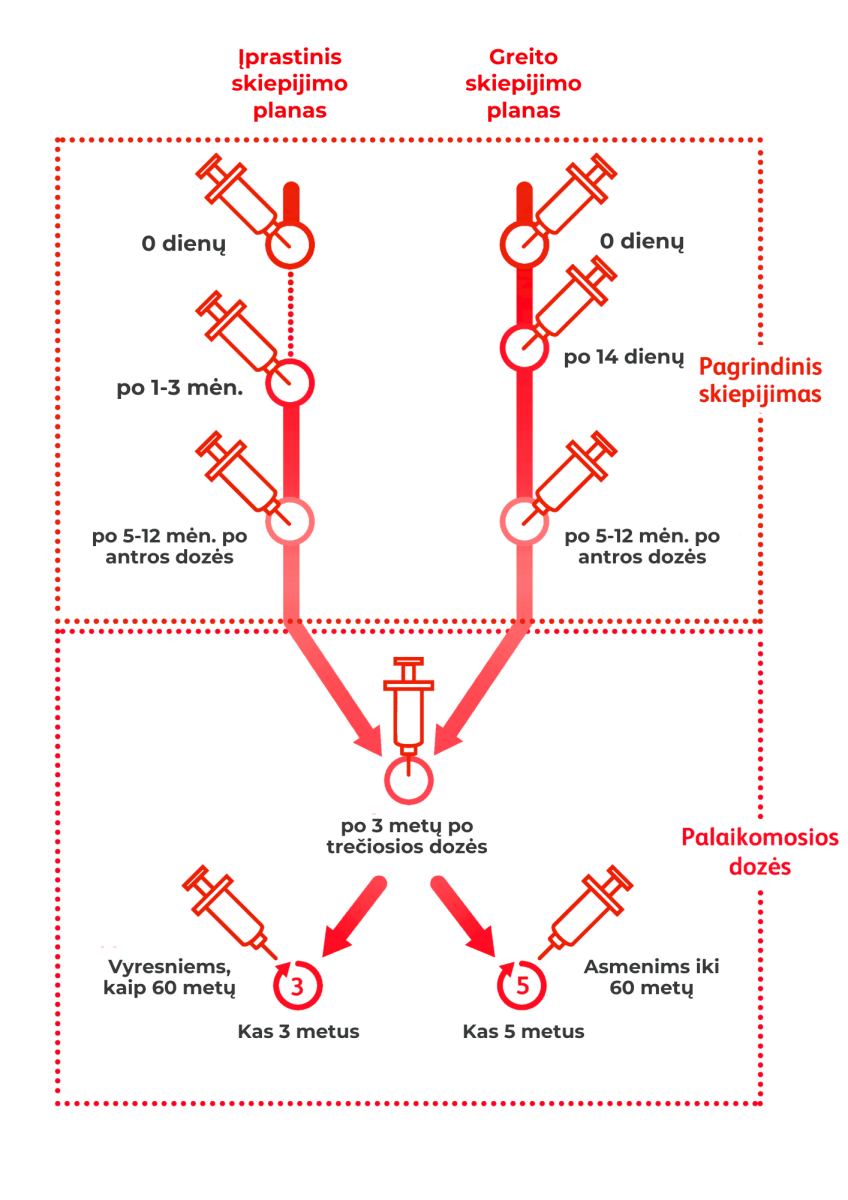
Vakcina nuo erkinio encefalito suaugusiems (TicoVac 0,5ml) ir vaikams (TicoVac 0,25ml)
30,00€
35,00€
Internetinių užsakymų galiojimo laikas: 3 mėn. nuo įsigijimo datos.
Erkinis encefalitas (EE) – tai sunki gamtinė židininė virusinė liga, sukeliama erkinio encefalito viruso (EEV), pažeidžianti galvos smegenis, jų dangalus ar periferinius nervus. EE yra viena iš svarbiausių virusinių žmogaus centrinės nervų sistemos infekcijų, kuriai būdingi liekamieji reiškiniai, kartais sukeliantys invalidumą. EE sergama daugelyje pasaulio šalių. Pirmą kartą EE aprašytas 1927 m. Austrijoje, o šios ligos sukėlėjas – EEV išskirtas 1937 m buvusioje Tarybų Sąjungoje.
ULAC duomenimis mirštamumas nuo EE siekia 0,5-4 %. Maždaug trečdalis žmonių, persirgusių EE, nevisiškai pasveiksta. Dažniausi liekamieji reiškiniai: negalėjimas susikaupti, miego sutrikimai, nuolatiniai galvos skausmai, padidėjęs jautrumas, elgesio pokyčiai. Rečiau – parezės (paralyžius).
Veiksmingiausia EE profilaktikos priemonė – skiepai. EE vakcinomis galima skiepyti vyresnius nei 1 metų vaikus. Vakcinavimo schemos yra dvi: įprastinė ir pagreitinta. Įprastinės skiepijimo schemos pirmosios dvi dozės įskiepijamos 1-3 mėn. intervalu; trečiosios ir sustiprinančiųjų dozių įskiepijimo intervalai gali būti skirtingi, priklausomai nuo vakcinos gamintojo, ir nurodomi vakcinos informaciniame lapelyje. Po pilnos vakcinacijos (3 dozių) apie 97 % skiepytų asmenų susidaro apsauginis antikūnių titras.








